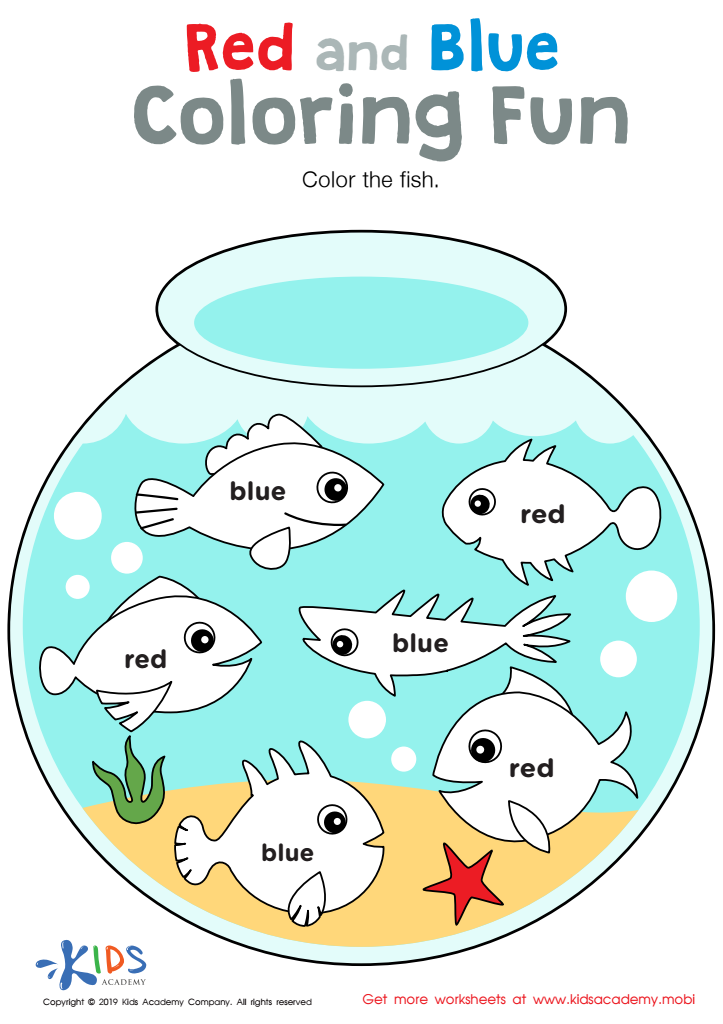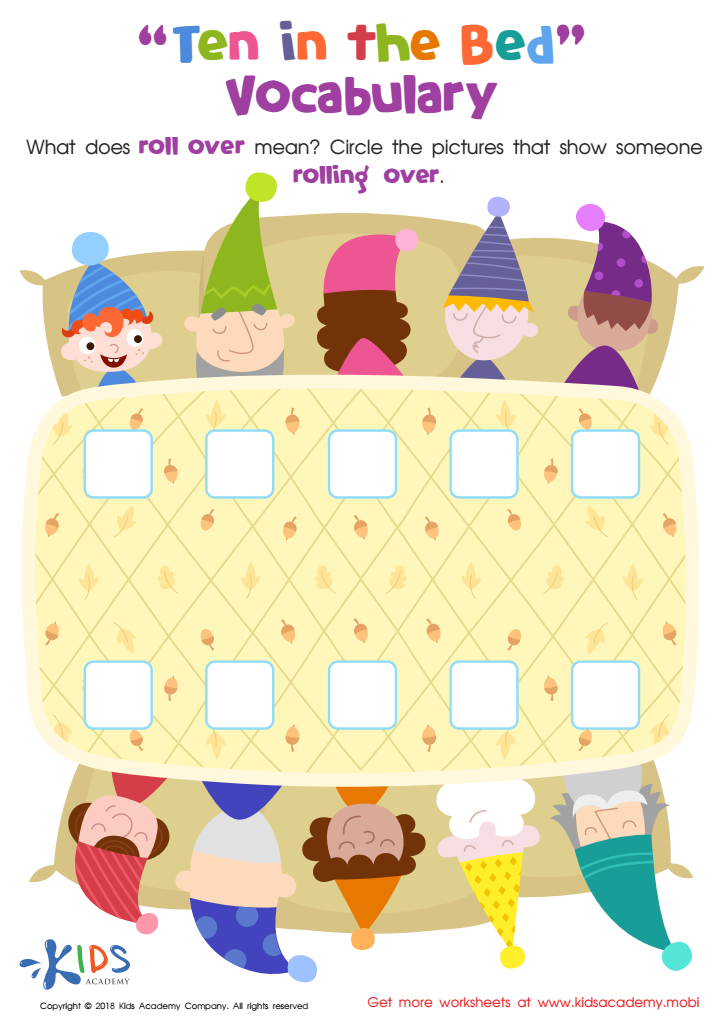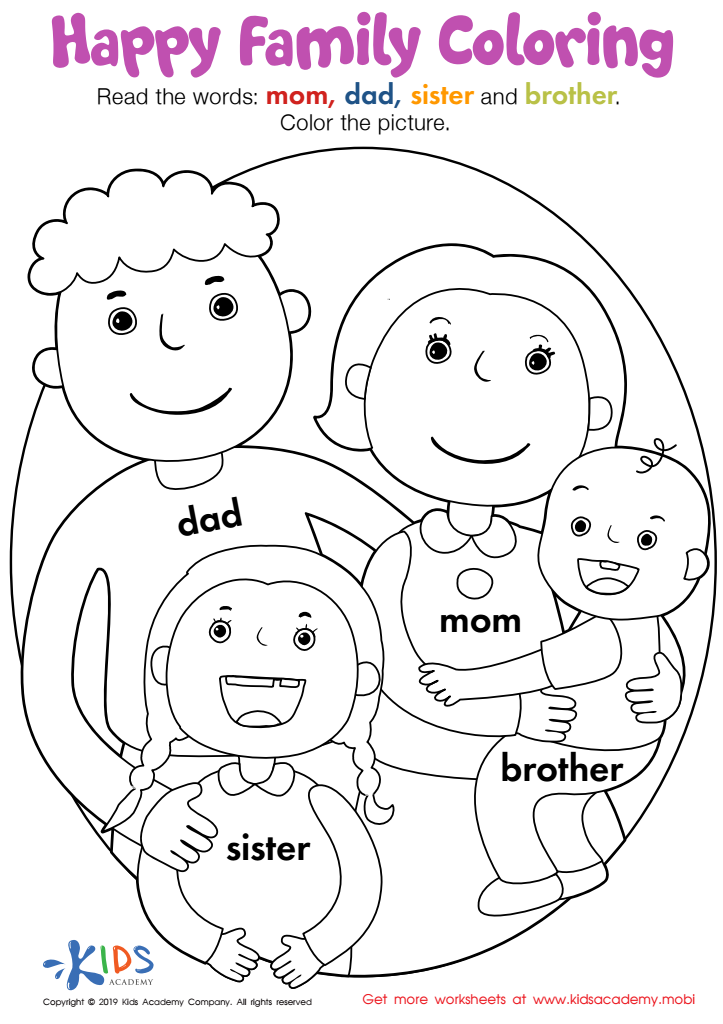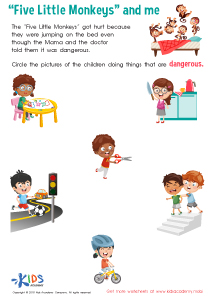Fine Motor Skills Easy Building Vocabulary Worksheets
4 filtered results
-
From - To
Discover our "Fine Motor Skills Easy Building Vocabulary Worksheets," designed to engage young learners in a fun and interactive way. These worksheets combine essential vocabulary building with fine motor skill development, perfect for preschool and early grade students. Each activity encourages children to practice writing, cutting, and pasting while expanding their vocabulary. Our resources are tailored to foster creativity and enhance cognitive abilities, making learning enjoyable. Ideal for classroom use or at-home practice, these worksheets support early literacy and fine motor coordination, setting a strong foundation for future educational success. Download now to empower your child's learning journey!


Red and Blue Coloring Fun Worksheet


Ten in the Bed: Vocabulary Worksheet


More Octopus Facts Worksheet


Happy Family Coloring Worksheet
Fine motor skills are essential for children's development, and understanding their importance can greatly enhance a child’s learning journey. These skills involve the small muscle movements in the hands and fingers, which are crucial for tasks like writing, drawing, and manipulating objects. Parents and teachers should prioritize nurturing fine motor skills because they are foundational for academic success and everyday life.
When children develop strong fine motor skills, they gain confidence in their ability to perform tasks, which leads to increased motivation in learning. Activities such as cutting with scissors, buttoning shirts, and using tools develop dexterity and coordination, influencing a child's competency in school tasks.
Furthermore, fine motor skills connect closely with cognitive and language development. Engaging in activities that require precision can enhance a child's focus and concentration, benefiting their overall learning experience. Additionally, as children experiment with different objects and activities, they build their vocabulary by associating words with actions and items, enriching their communication skills.
In summary, prioritizing fine motor skills helps children grow academically, socially, and personally. By investing in their development, parents and teachers can ensure that children are well-prepared for future challenges and experiences.
 Assign to My Students
Assign to My Students













.jpg)












